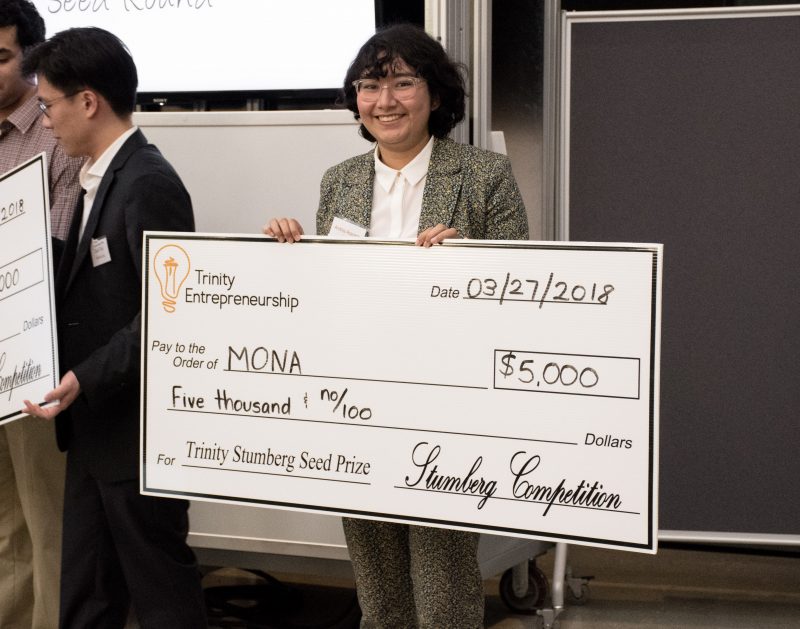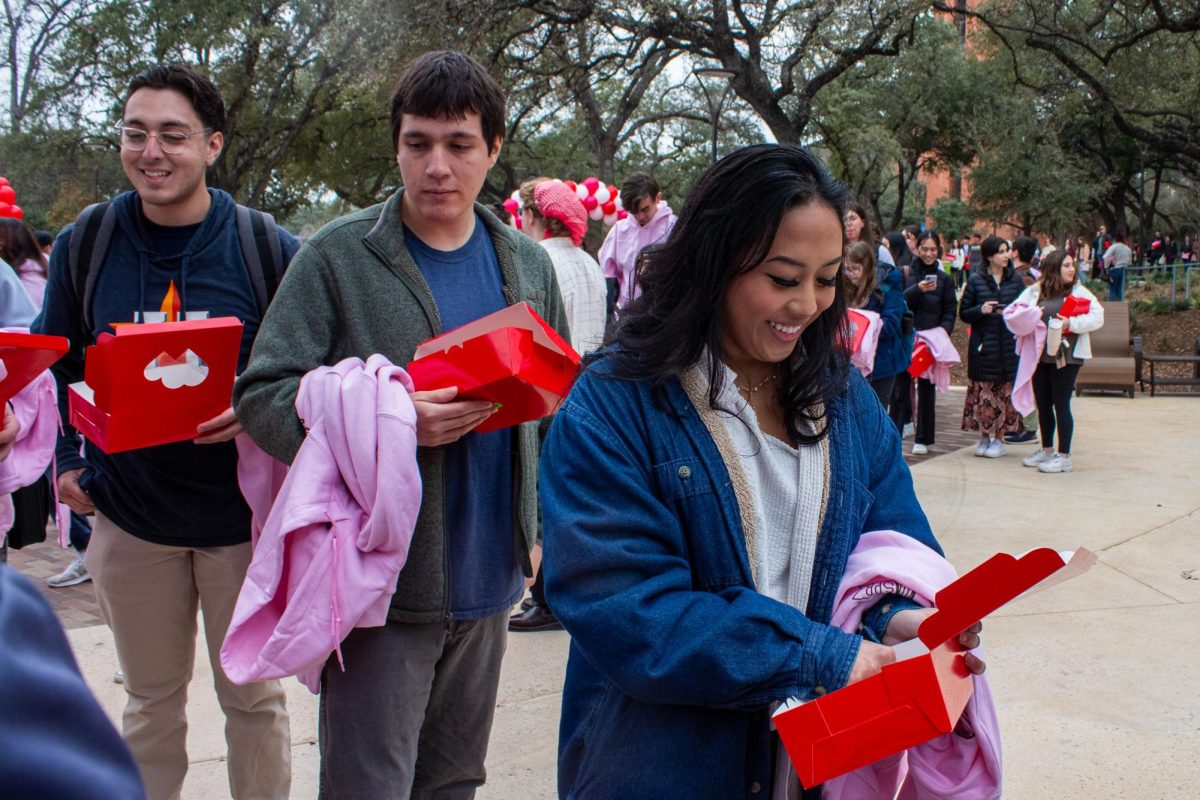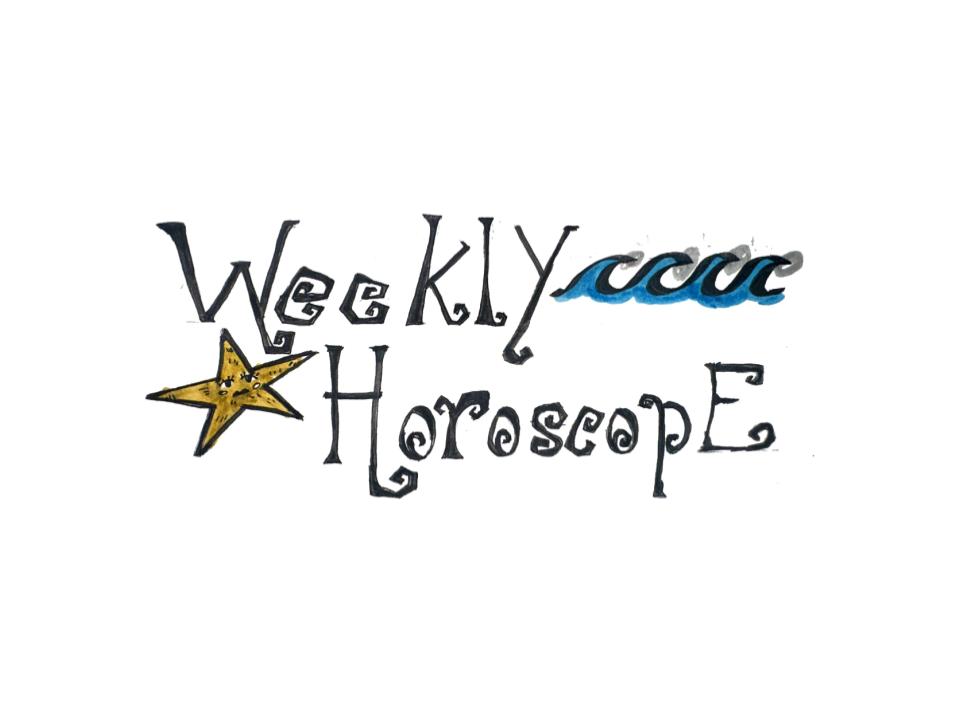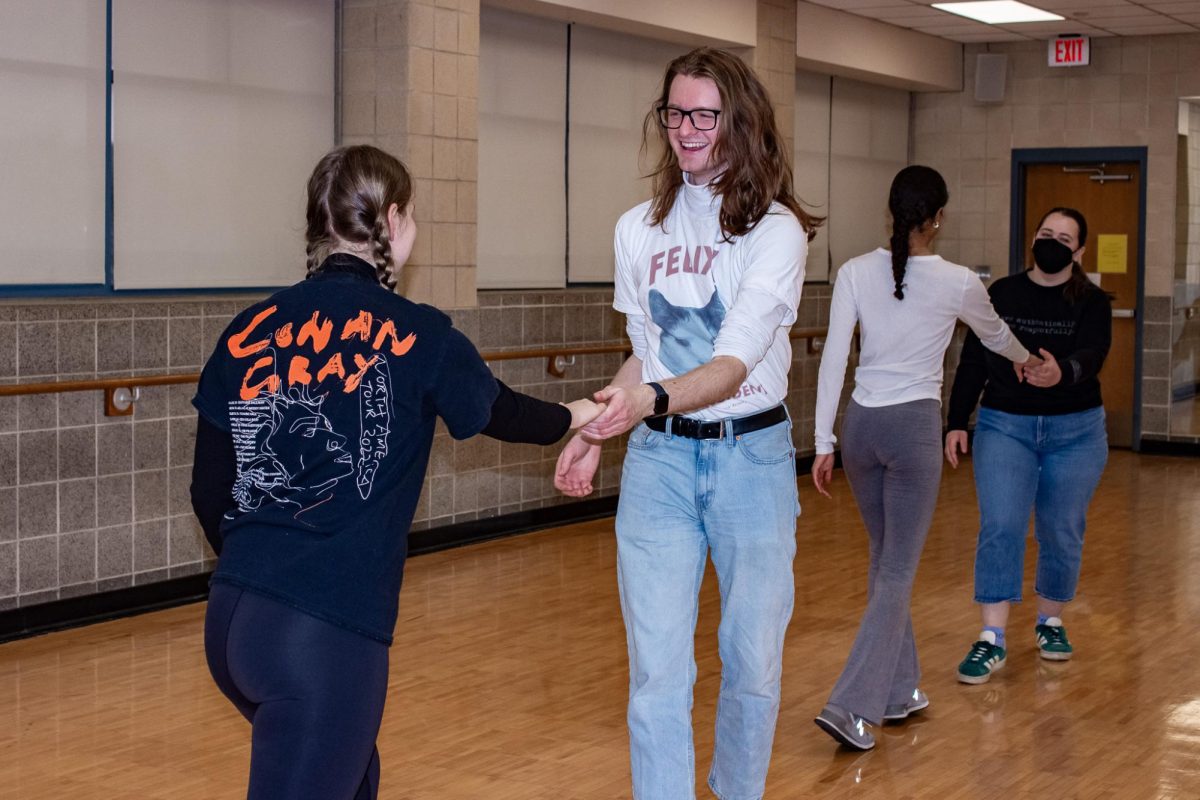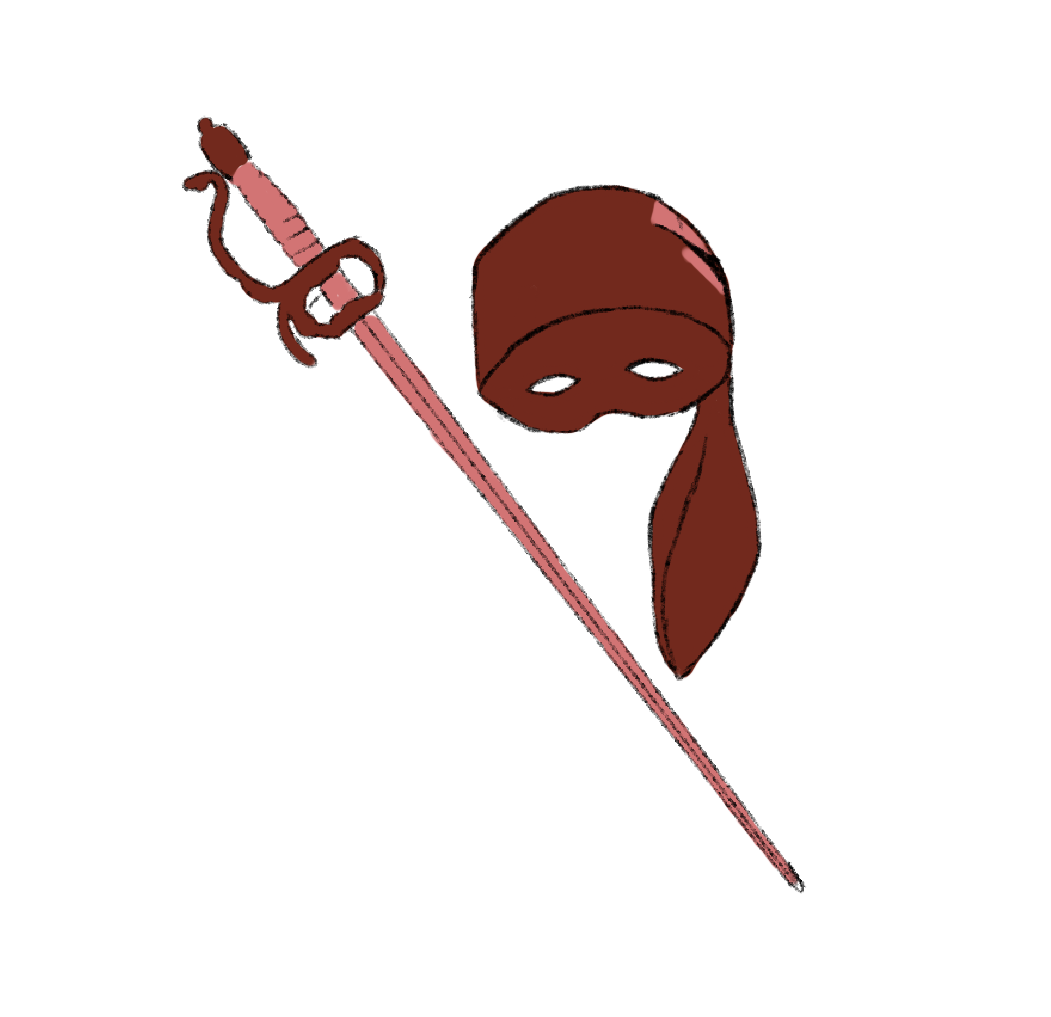After the seed round of the Louis H. Stumberg Venture Plan Competition ended, the finalists stood smiling and laughing, knowing they had qualified to move onto the next round. All the finalist leadership teams — Mona, InterSourcing, Patch, Complete Chess and Quick Sip — posed for a picture holding giant $5,000 checks.
Among the five teams considered finalists, products were diverse, ranging from cold brew coffee to high tech pill bottles. The teams were, however, less diverse in terms of gender.
In the picture of twelve seed round finalists, only one woman, Andrea Acevedo, was presented as the founder of a company, Mona. Three other women — Rachel Lawson with chess education company Complete Chess, Meredith Peckhak with business company InterSourcing and Selena Davila with coffee company Quick Sip — were on the finalist leadership teams.
“We always have one to two teams every year that’s led by a woman and again, we have anywhere between two to four teams where we have women, if not leading, in senior roles,” Luis Martinez, director of the entrepreneurship department, said.
Since 2014, the first year of the competition, 40 to 60 percent of companies that qualified as Stumberg finalists included women creators or women with senior leadership roles. The entrepreneurship department recognizes the disparity of women within the Stumberg Competition.
“We need to do a better job with regards to marketing. We are committed to having more women founders. We’re going to be doing some things to ensure that we have a significant women participation rate,” Martinez said.
According to Martinez, these efforts will include requiring students in certain entrepreneurship classes to pitch a company, and having professors create initiatives that reward students for participating in Stumberg. Additionally, the entrepreneurship department wants to do better outreach towards the women-led organizations on campus.
The department is also focusing on promoting Stumberg to students enrolled in social entrepreneurship courses because they have noticed that women gravitate towards the mission-driven aspect of entrepreneurship.
“We find that women tend to congregate in trying to solve problems that are mission focused. So in our social innovation course, in our social entrepreneurship course, we’re trying to figure out how to best promote the Stumberg prize as a vehicle for students who are in that particular area,” Martinez said.
Elizabeth Metzger, junior and previous Stumberg participant, took a social entrepreneurship class while she was in high school, which sparked her interest in entrepreneurship. In 2015, Metzger pitched her company, GLO, at the Stumberg Competition and became a finalist.
She remembers being on a completely female team. Although she recognized its presence, Metzger did not feel inhibited by the gender imbalance within the competition.
“It was interesting because all of us had strong female role models in our lives. All of our moms are hardworking moms, which I think may have been the reason we all gravitated together. I think that when you have role models from your own personal life, and also professional, you’re able to imagine that you can be things,” Metzger said.
Acevedo, who created her own virtual reality company, Mona, became a finalist in this year’s Stumberg Competition. Acevedo thought the lack of diversity of the competition was noticeable but did not inhibit her ability to compete.
“I think that the entrepreneurship department actually does a good job of encouraging all of us. I think that obviously, it feels more intimidating to compete as a woman. When I went to go pitch something, I was one of two girls in the room, and it definitely felt a little bit intimidating,” Acevedo said.
Additionally, Acevedo observed the efforts that the department makes during the competition to create a more diverse environment.
“All the different judges had a lot of different backgrounds. I just think the entrepreneurship department is doing a really good job considering diversity and implementing it,” Acevedo said.
The Stumberg Competition will end in the Fall of 2018, when one team will win $25,000 to develop their company.

